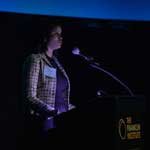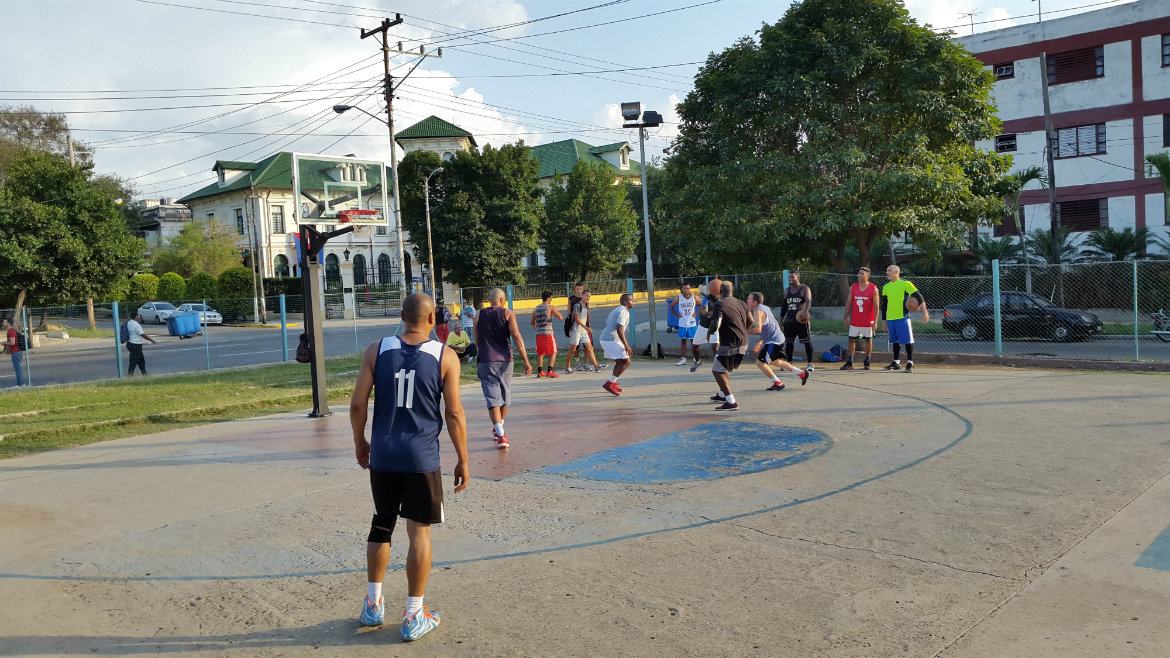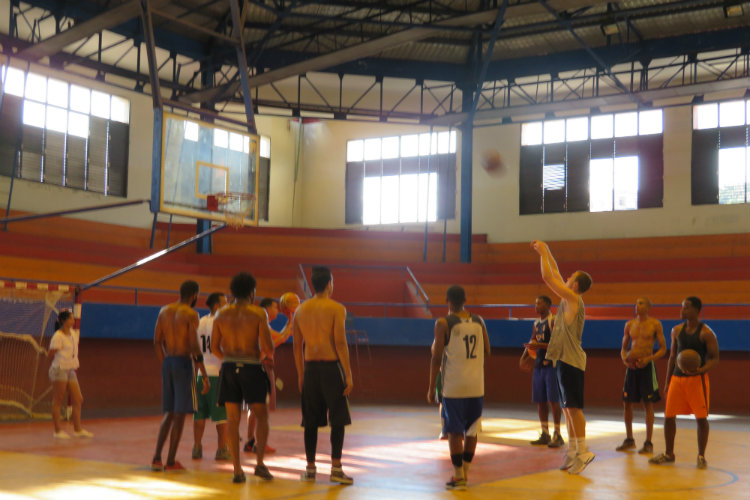Raycell Diaz Hernandez ’24 shares importance of building bridges among generations of Gettysburgians


By Scott Csaplar ’18
The national tournament for university sports is a major source of pride for the people of Cuba. There were thousands of spectators and millions of viewers as their young athletes from across the country competed to be the best on national television.
Of the 610 Cuban athletes, though, there was also one American from Gettysburg College: me, the guy nervously standing at attention as the Cuban national anthem played.
This is how I got there.
Last spring, I applied to study abroad at the University of Havana. Part of the reason I chose to attend Gettysburg was because of its strong commitment to a global education. It was my junior year and, as a political science major and Spanish minor, I jumped at the chance to study in a country so close, but so different.
I played basketball all my life and knew it was an up-and-coming sport in Cuba. I eventually found a court near my Cuban family where the locals played pick-up every night when the sun set and the temperature dropped. A friend invited me to play on a club team, which led to an invitation from the coach of the University of Havana (UH) to try out for their team.
The gym the team played in was located in the back of the university campus. The first thing you see in the gym is a massive photo of Fidel Castro playing basketball when he was in college. It was said to be his best sport.
The gym itself looked as old as Fidel; loose floorboards that killed a dribble instantly, old concrete bleachers covered in dust and cigarette butts, lights that eerily illuminated the court, and a patchy aluminum roof with birds nesting and sometimes defecating on the court below.
We practiced every weekday at 7 p.m. I was usually the first to show up because of what we called “Cuban time.” The Cuban transportation system is, like many other industries in Cuba, old and outdated, which meant that players who lived outside of the city were often late to practice. Once we lost the keys to the gym and couldn’t practice for a week.

—
University teams from all over Cuba travel to play a championship tournament each school year in Camagüey, a large city in the center of the island. It was an eight-hour drive in a single, slow-moving bus, and we were joined by gymnastics, karate, and a member of the chess team.
Over the five-day tournament, we lived in the University of Camagüey dorms: five sets of bunk beds about 15 inches apart lined each room, with writings and old pictures of Jennifer Lopez and Justin Timberlake tacked to the walls.
There were no sheets, towels, blankets or pillows, and I didn’t know to bring any.
My teammates laughed themselves into tears when they saw me sleeping on a bare mattress pad using folded up shirts for my pillow. When I said I thought they would be provided, they laughed and said, “Dude, this is Cuba.”
In the common Cuban manner of sharing, however, one of my teammates gave me a sheet to use so I wasn’t sleeping on the old scratchy mattress.
We ate in the school cafeteria together; typical Cuban fare – chicken or pork, as well as black beans and rice.
—
The opening ceremonies were widely attended by about 2000 locals and broadcast by Cuban national television. Of the 610 athletes competing in the games, I soon realized I was not only the only American; I was also the only foreigner. Together, I entered the arena with the other UH athletes following the university flag, with fog machines and purple lights for effect. It was a very proud moment for all the athletes to represent their school.
UH and Camagüey were the first games after the opening ceremony. Camagüey easily won, 71 to 48.
After the game, Camagüey players worked hard to console us on the loss. I wasn’t sure if this was part of the Cuban psyche or just the fact that we had to share a ride back to the dorms on a tiny bus. In any case, it was one of the most awkward bus rides I have ever taken.
Shortly after the tournament ended, I returned home to the U.S. with my suitcases stuffed with souvenirs, but also with an experience I will remember for the rest of my life. The opportunities Gettysburg College provided me to study in such a diverse, welcoming, and misunderstood place have not only changed the way I see the world and the people around me, but my future as well.
Studying abroad is as much an opportunity to learn who you are as it is a chance to learn about other people and cultures—I was so far out of my comfort zone that I couldn’t even see where it was! Going abroad challenges and causes growth while posing questions and answers that need to be experienced to be fully understood.
Gettysburg College offered me the chance of a lifetime to make a decision that few other schools or institutions could offer; and that decision, worth one semester, will be as impactful as all the other seven.
Scott Csaplar ’18 is a political science major and Spanish minor. In addition to studying abroad during his junior year, Csaplar is an active member of the Greek community and works with Campus Recreation programs.
You can read an expanded version of his experiences abroad online.